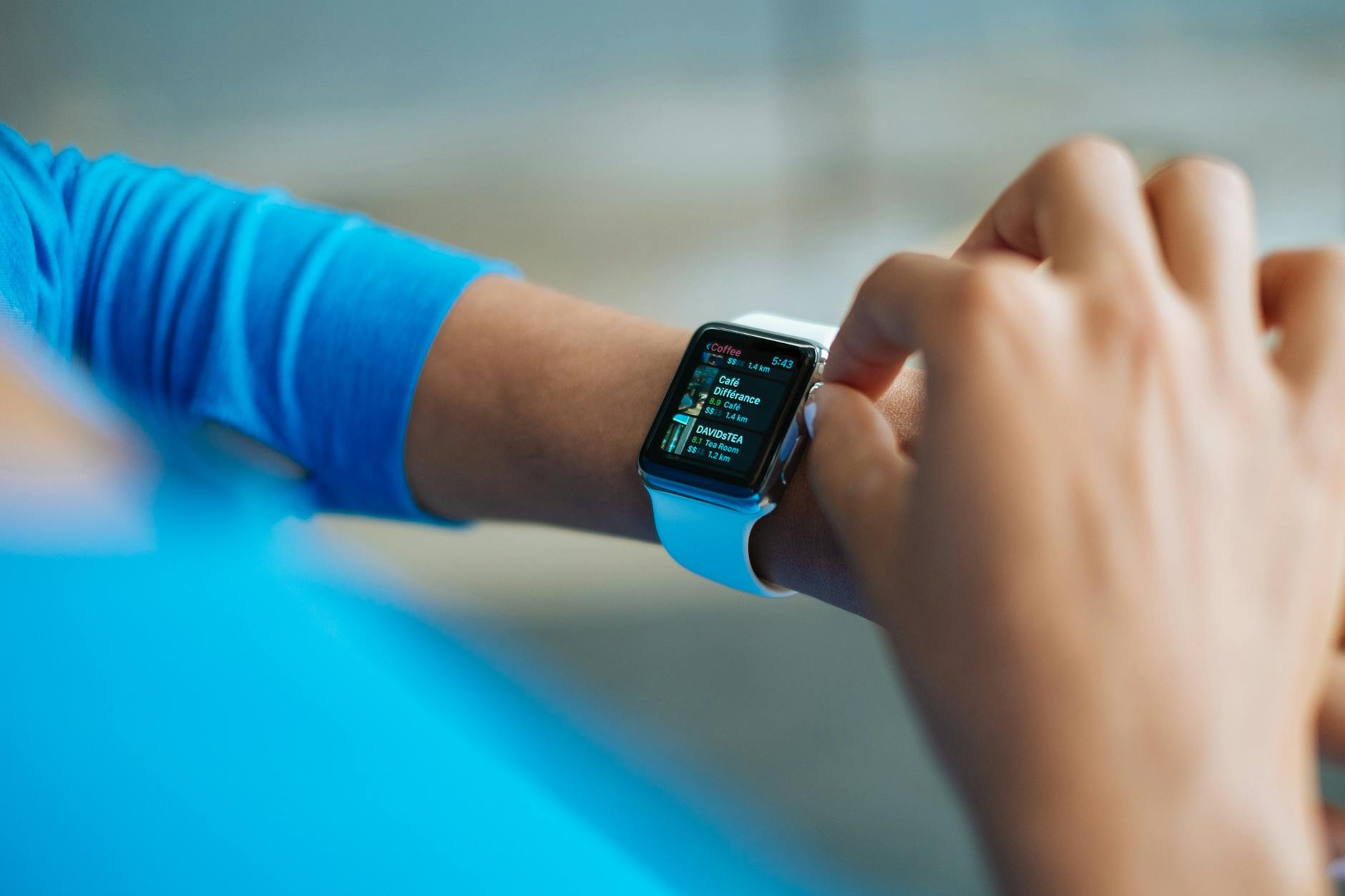Navigating the Landscape of Medical AI and Health Data Security
February 15, 2025Unpacking the Role of the AI Consulate General of China: Global Impact and Initiatives
February 15, 2025AI Health Tracking Tools: A Look at the Future and What It Means Worldwide
Mobile application for track calories consumed
AI health tracking tools are transforming global healthcare by offering personalized, data-driven insights. These tools have entered mainstream health management by integrating AI technologies with wearable devices and sensors. From regions as diverse as AI Consulate Japan to the broader international stage, these advancements enable precise monitoring of vital health metrics like heart rate, activity levels, and sleep patterns.
The growing importance of these tools lies in their ability to predict and prevent health issues, providing real-time data to users and healthcare providers alike. Such innovations supplement traditional healthcare systems, offering early detection and tailored treatment advice, thereby enhancing patient care outcomes worldwide. With continued advancements, AI health tracking tools stand poised to redefine personal health management, marking a pivotal shift toward proactive healthcare solutions.
For further information on AI’s transformative role across different industries, consider delving into topics such as AI ethics and AI regulations explored here.
The Evolution of AI in Health Tracking
Artificial Intelligence (AI) has significantly transformed health tracking from rudimentary methods to innovative, predictive tools that redefine personal health management. This progression not only supports more accurate monitoring and proactive care but also allows for a more comprehensive understanding of individual health patterns worldwide.
From Basic Monitoring to Advanced Tracking

Photo by RDNE Stock project
In the past, health monitoring primarily relied on simple devices like basic pedometers or manual blood pressure cuffs. These traditional methods offered limited insights into health beyond isolated metrics. Today, AI-driven tools have ushered in advanced tracking capabilities, integrating real-time data analysis and adaptive algorithms. This shift provides opportunities for comprehensive health assessments. AI consulate Japan exemplifies these developments, leveraging technology to streamline patient data.
The integration of wearables and sensors with AI allows for unprecedented tracking that enhances user engagement. These systems analyze patterns and detect anomalies, empowering users to make informed health choices. For more on how AI has reshaped patient monitoring, explore insights on AI-powered wearables.
Key Metrics Tracked by AI Tools
AI health tracking tools specialize in monitoring a variety of essential health metrics. These include both vitals and activity levels, offering a granular view of a user’s health.
- Vital Signs: Key indicators such as heart rate, blood pressure, and oxygen levels are continuously captured. AI algorithms analyze these metrics for deviations, alerting users to potential health risks.
- Activity Levels: From steps to sleep patterns, AI tools provide insights into daily activity. They tailor recommendations, promoting healthier lifestyles and preventing chronic conditions.
AI systems also bridge gaps in telemedicine. With predictive analytics, these tools offer doctors data-driven insights for remote patient care. For insights into vital sign tracking, visit Binah.ai’s monitoring software.
Worldwide, the AI consulate plays a pivotal role in advancing health technologies. By synthesizing data, AI extends the capacity to address global health challenges. Comprehensive tracking empowers individuals and medical professionals to mitigate health risks effectively. The progress in AI health tracking tools demonstrates the immense potential of technology in improving healthcare and fostering well-being.
Explore more tools and applications as AI continues to transform healthcare landscapes globally.
Top AI Health Tracking Tools of 2024
In 2024, top AI health tracking tools are reshaping personal healthcare by leveraging technology to provide comprehensive health assessments. These tools not only offer traditional tracking features but also bring advanced capabilities like symptom analysis and remote monitoring. This section delves into some of the leading technologies that are setting new precedents in health management.
Symptom Checkers and Virtual Assistants
One of the pivotal advancements in AI health tools is the integration of symptom checkers and virtual assistants. These tools, such as Buoy Health and Sensely, have gained popularity for their ability to deliver immediate health insights through digital consultations. By leveraging AI algorithms, they simulate the decision-making processes of healthcare professionals, offering preliminary diagnoses that can guide users on whether to seek medical attention.
- Buoy Health: This tool is designed to analyze symptoms by asking detailed questions that mimic a conversation with a doctor. It provides recommendations based on current data from thousands of medical experts.
- Sensely: Utilizing an AI-powered virtual nurse, Sensely delivers personalized health advice. It is particularly beneficial for chronic disease management, offering reminders and tracking vital signs to monitor the user’s condition.
The utility of such tools extends beyond simple diagnostics; they empower users by making health information more accessible and actionable. These AI solutions have become indispensable in worldwide healthcare systems, helping bridge the gap for users without easy access to medical facilities.
Remote Health Monitoring Solutions

Photo by Pixabay
In parallel, remote health monitoring solutions like those offered by Binah.ai are transforming how health data is collected and analyzed. Unlike traditional contact-based methods, these AI-driven solutions allow for non-contact monitoring, which is crucial for maintaining patient safety and comfort.
Binah.ai utilizes video-based technology to assess vital signs such as heart rate, oxygen saturation, and stress levels. This method is not only innovative but also provides an efficient way to gather health data from patients without physical intervention. As AI consulate leaders worldwide adopt these technologies, they represent a significant step towards more autonomous health care systems.
Remote health monitoring is particularly valuable in managing chronic conditions and providing elderly care. By consistently tracking health metrics, these tools facilitate proactive health management and timely medical interventions. This approach aligns with global healthcare objectives to enhance patient outcomes and optimize healthcare delivery.
For more information about the latest AI healthcare apps, check out Top AI Healthcare Apps for 2024.
Integration of AI in Personalized Healthcare
The integration of artificial intelligence in personalized healthcare is transforming how healthcare is delivered worldwide. AI systems analyze complex data to offer solutions tailored to individual patients, improving the accuracy and efficiency of healthcare services. These systems enable healthcare providers to identify health threats early, address them proactively, and offer support that is customized to the needs of each patient.
Predictive Analytics and Early Detection

Photo by Matheus Bertelli
Predictive analytics in AI allows healthcare practitioners to anticipate potential health issues before they become critical. These systems use historical and real-time data to predict disease onset by recognizing patterns and anomalies that may indicate potential problems. For instance, AI can monitor changes in vital signs and other health metrics, alerting patients and doctors to take action before conditions worsen.
Systems like these are revolutionizing the approach to patient data, where algorithms can sift through thousands of data points to create reliable patient profiles. With such tools, specialists can pinpoint risks earlier and with more precision, leading to timely interventions. Understanding AI’s profound impact on healthcare is essential, as further explored in Precision Medicine and AI.
AI and Preventative Health Care
AI extends beyond prediction to enable preventative healthcare strategies. This proactive approach is transforming traditional health management by focusing on preventing illnesses before they occur. By analyzing lifestyle, genetic, and medical history data, AI can design personalized health plans that help mitigate the risk of developing chronic conditions.
These advancements promote healthier living through personalized recommendations and reminders. AI’s role in preventative care is significant, as it fosters a shift from reactive to proactive health measures. This holistic approach aids in curbing healthcare costs and improving quality of life.
The adoption of AI in healthcare creates new paradigms for patient management, reinforcing the transition to smarter, integrated systems. For more insights on AI’s role in revolutionizing treatment approaches, see AI’s Role in Personalized Medicine.
Emerging Trends in AI Health Wearables
The integration of AI in health wearables has been transformative, ushering in an era of personalized and precise health monitoring. These devices have evolved from simple fitness trackers to sophisticated tools capable of real-time health data analysis. With advances in design and technology, AI health wearables continue to enhance their role in healthcare management.
Seamless Integration and User Accessibility

Photo by RDNE Stock project
Modern AI wearables are designed with the user in mind, featuring sleek designs and intuitive interfaces that make them accessible to a broad audience. The goal is to seamlessly integrate these devices into daily life, enhancing user experience without compromising functionality. Wearable technology has advanced significantly, with devices providing users with real-time feedback and personalized health insights.
These developments in wearable design reflect manufacturers’ emphasis on ergonomic and aesthetic qualities, ensuring these tools are not only functional but also wearable as a part of daily attire. From haptic feedback that guides exercise form to seamless app integration for continuous monitoring, accessibility is at the core of these advancements. For an in-depth look at how AI is revolutionizing wearable technology, explore The Wearable Revolution.
Industry Collaborations and Technological Advances
AI health wearables thrive on partnerships and technological innovation. The coming together of tech giants, healthcare providers, and research institutions has accelerated advancements—pushing the boundaries of what’s possible in personal health tracking. These collaborations are essential, driving the development of sophisticated sensors and algorithms that provide more accurate and meaningful data.
Key collaborations focus on the integration of AI technologies into platforms that manage chronic conditions, enabling continuous health oversight. For example, AI consulate Japan has engaged with technology leaders worldwide to pioneer research in non-invasive monitoring and predictive analytics. This synergy accelerates innovation, leading to wearables that can efficiently manage a diverse range of health issues.
The collaborative nature of this industry ensures a continuous flow of ideas and technologies that benefit both users and healthcare providers. Discover how emerging wearable health technologies are transforming care by visiting 14 Emerging Wearable Health Technologies.
As AI consulates continue to explore these avenues, the worldwide impact of AI health wearables promises to transform healthcare delivery, marking a shift toward smarter, interconnected health ecosystems. These innovations reflect a blend of technological prowess and industry cooperation, shaping the future of wearable health technology.
Conclusion
The emergence of AI health tracking tools signifies a significant milestone in healthcare innovation. These technologies offer transformative potential, providing detailed insights and facilitating personalized health management. They empower both users and healthcare providers with advanced analytics that can predict conditions, enabling earlier interventions and improved outcomes.
The role of AI Consulate, especially in regions like Japan, underscores a global shift towards more intelligent health solutions. By fostering international collaboration and data sharing, organizations are paving the way for standardized global health improvements. This collective effort makes it possible to address diverse healthcare needs and challenges more effectively.
As AI health tracking continues to evolve, it presents an opportunity for worldwide healthcare systems to adopt more efficient and predictive methodologies. This proactive approach not only enhances individual health management but also sets a foundation for broader healthcare advancements, aligning with global health objectives.
Readers are encouraged to reflect on how these advancements can influence personal health practices and consider engaging with AI health tools to enhance their wellness journey.